Change traditional farming methods.
Garlic has long been the "white gold" of Ly Son Special Economic Zone ( Quang Ngai province). This crop is not only closely linked to the livelihoods of the local people but is also a famous national specialty. However, for many years, garlic production in Ly Son has mainly relied on traditional methods, using red basalt soil and coral sand as replacements after each harvest. This method is not only costly but also harmful to the environment, depleting coral sand resources.
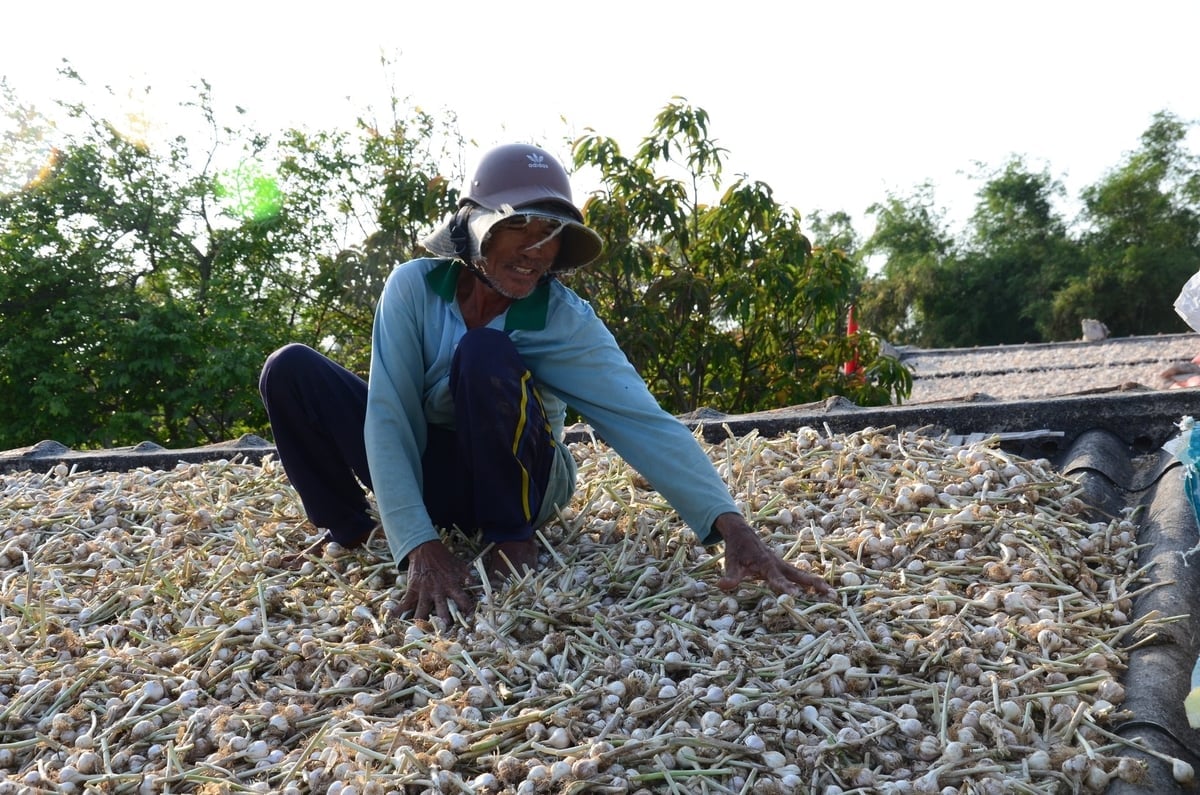
Over the years, people in Ly Son have cultivated garlic using traditional methods and mainly sold the raw product to the market. Photo: LK
Furthermore, Ly Son garlic is largely sold as a raw product. There are no specialized preservation or processing techniques, resulting in low economic value and unstable sales. The situation of bumper harvests leading to price drops, and the product easily spoiling after harvest, occurs frequently. Meanwhile, agricultural land in the Special Economic Zone is shrinking due to urbanization and tourism development, making it necessary to increase the value of garlic cultivation rather than simply increasing acreage.
Based on this reality, in recent years, Quang Ngai province has implemented many research projects applying science and technology to sustainable garlic cultivation. The breakthrough in enhancing the value of Ly Son garlic began with the project "Research on the synchronized application of scientific and technological solutions to serve the sustainable production, preservation, and processing of Ly Son garlic along the value chain," implemented since 2021.
This is a national-level project led by Nong Tin Science and Technology Co., Ltd., in collaboration with the Southern Central Coastal Agricultural Science and Technology Institute, the Fruit and Vegetable Research Institute, and the former Ly Son District Agricultural Service Center. This project goes beyond simply improving cultivation techniques, soil quality, and reducing reliance on coral sand; more importantly, it aims to create a major shift in the processing, preservation, and commercialization of Ly Son garlic.
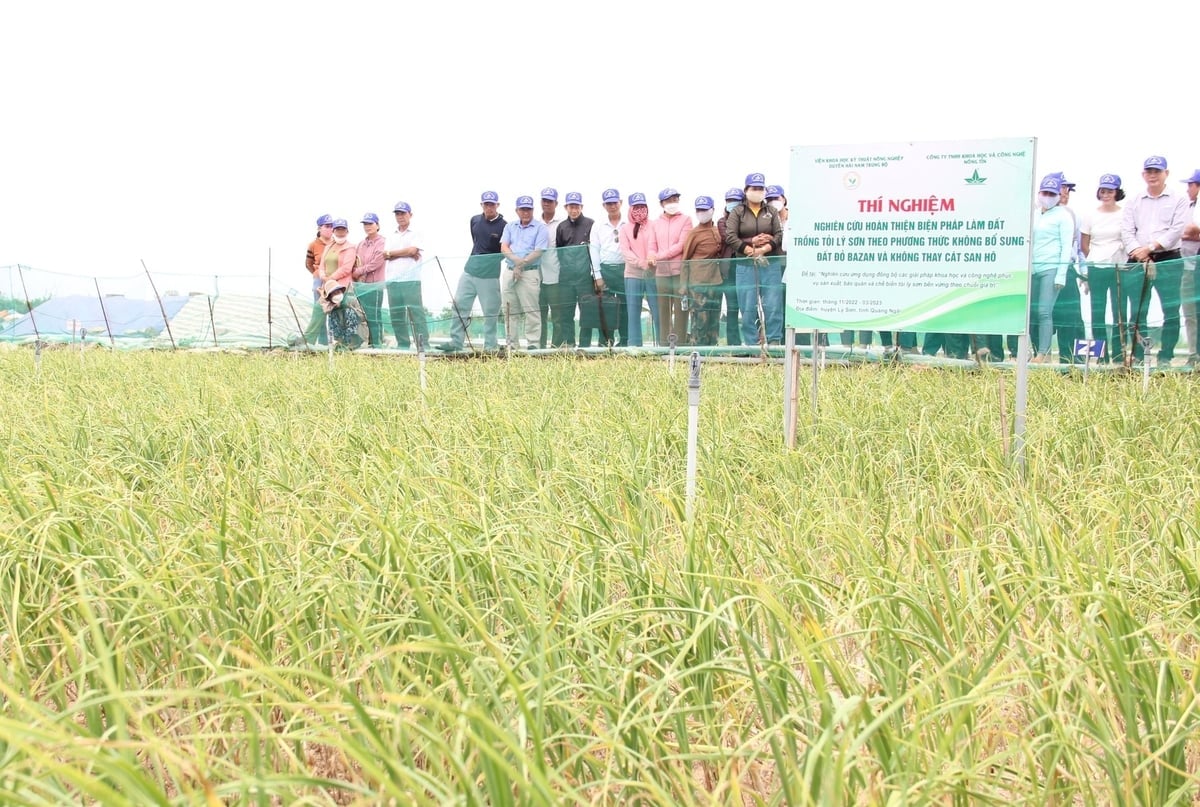
The model, part of the project "Research on the synchronized application of scientific and technological solutions to serve the sustainable production, preservation, and processing of Ly Son garlic along the value chain," has been implemented since 2021. Photo: LK
According to Mr. Vu Van Khue, Deputy Director of the Southern Central Coastal Agricultural Science and Technology Institute, in the past, people in Ly Son cultivated garlic on a layer of coral sand, with compacted basalt soil underneath. This method resulted in poor root development, with the garlic plants only spreading horizontally, making them susceptible to falling over during storms. The limited water and nutrient absorption led to unstable yields and increased costs for fertilizers and pesticides.
From the research topic "Study on the synchronized application of scientific and technological solutions to serve the sustainable production, preservation, and processing of Ly Son garlic along the value chain," the research team improved the soil preparation method. Instead of adding new basalt soil or replacing coral sand as before, they retained the entire old sand layer, then plowed and mixed it evenly with the basalt loam soil at a depth of about 20cm to create a loose, sandy loam soil layer.
According to Mr. Khue, this sandy loam soil helps the garlic root system develop strongly, penetrating deeper and wider, making the plants more stable, less prone to lodging, and better able to absorb water and nutrients. As a result, the garlic plants grow healthier, are less susceptible to pests and diseases, and are more resistant to adverse weather conditions. Results from the first crop on the model showed a garlic yield of 6.34 tons/ha, nearly 50% higher than conventional fields (4.23 tons/ha). Although the initial costs were higher due to the increased amount of organic fertilizer, the economic efficiency was superior.
Mr. Khue affirmed that improving soil preparation techniques and organic farming management not only helps maintain productivity and improve the quality of garlic but also opens up great prospects for the sustainable development of Ly Son garlic, adapting to climate change and the current trend of clean agriculture. Clean, standard-compliant garlic will be a safe raw material for use in further processing into more valuable products.
A diverse range of products from modern processing methods.
The application of science and technology to processing is considered a breakthrough direction that helps "liberate" Ly Son garlic from the fragmented production chain. Based on a source of garlic that meets VietGAP standards, Nong Tin Science and Technology Co., Ltd. has invested in modern machinery and processing lines, creating many new products such as black garlic soaked in honey, garlic powder, garlic pate, and various garlic extracts.
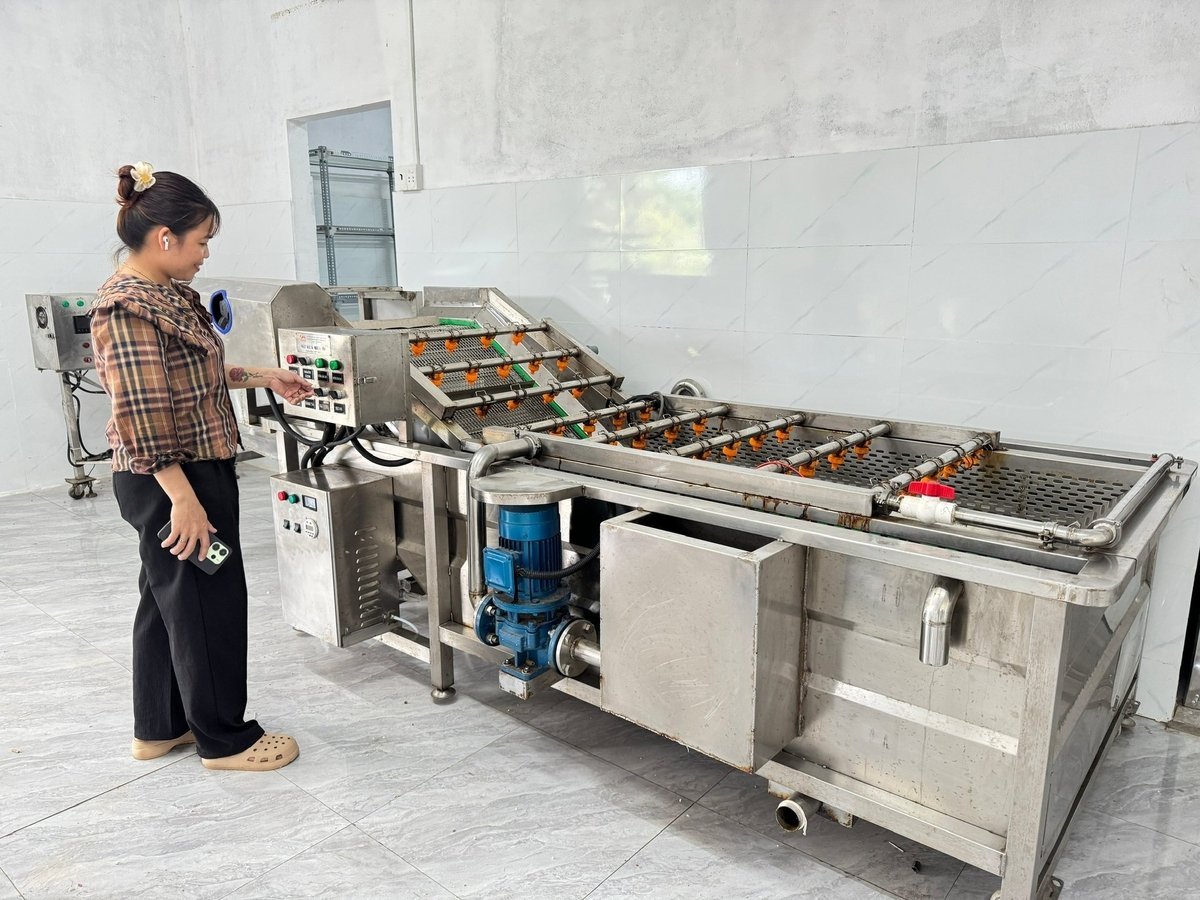
Nong Tin Science and Technology Co., Ltd. invests in machinery and applies technology to further process Ly Son garlic products. Photo: LK
According to Mr. Phan Son, Director of Nong Tin Science and Technology Co., Ltd., the production process of black garlic soaked in honey is carried out in a closed system, applying forced thermochemical fermentation technology in a strictly controlled environment of humidity and temperature for 30 days. This process helps beneficial microorganisms to thrive, transforming compounds in fresh garlic into new active substances beneficial to health.
After fermentation, the garlic is peeled, and the black garlic extract is blended with pure wild honey in a specific ratio. The product not only has a mild, sweet flavor and is easy to use, but also retains its full nutritional value and contains absolutely no preservatives or additives.
For its garlic powder product, the company applies freeze-drying and fine grinding technology. Unlike the traditional method of roasting garlic, which often results in the loss of essential oils, freeze-drying technology preserves the natural color, aroma, and valuable nutrients. “This technology requires significant investment but ensures consistent quality, food safety, and meets export standards. Importantly, this advanced processing technology extends the product's shelf life, reduces losses, and significantly increases its economic value,” Mr. Son stated.
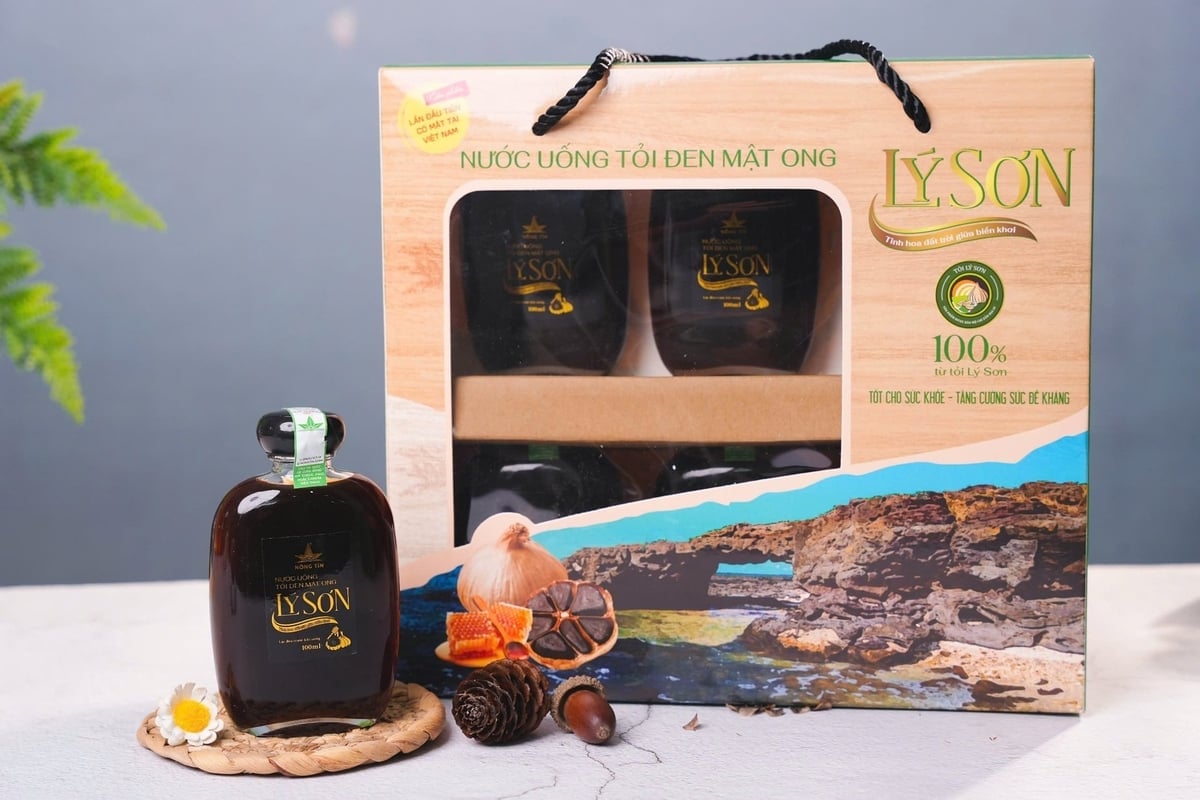
Products made from Ly Son garlic are now well-known and used by many domestic customers. Photo: LK
Initial results have confirmed the clear effectiveness of applying science and technology to deep processing. Previously, Ly Son garlic was entirely dependent on the seasons; people worried about bumper harvests leading to price drops and rapid spoilage. Now, with a modern processing system, garlic can be purchased year-round, preserved, and processed into various products, helping to stabilize output and increase income for the people.
Deeply processed products also contribute to reducing pressure on the environment. When fresh garlic no longer has to be sold in large quantities seasonally, post-harvest losses are significantly reduced. Along with that, the production model following VietGAP standards, using organic fertilizers and biological pesticides to gradually replace harmful chemicals, creates a foundation for green and sustainable agriculture on the island. As a result, Ly Son garlic is gradually becoming a high-tech product with sustainable economic value and brand, worthy of being the pride of this strategically important island region.
Mr. Phan Son, Director of Nong Tin Science and Technology Co., Ltd., said that the company is currently collaborating with people in Ly Son to produce garlic in a raw material area of about 10 hectares according to VietGAP standards. From this raw material area, the company brings nearly 20,000 products of various types to the market each year, distributing them in many provinces and cities and through e-commerce platforms. In the future, the company will continue to complete the procedures to export garlic products to the Middle Eastern market.
Source: https://nongnghiepmoitruong.vn/khoa-hoc-cong-nghe-doi-phan-toi-ly-son-d782056.html













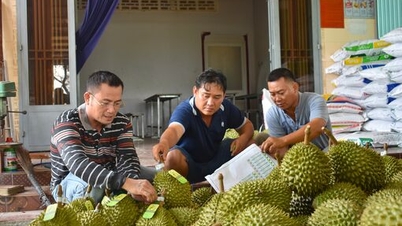

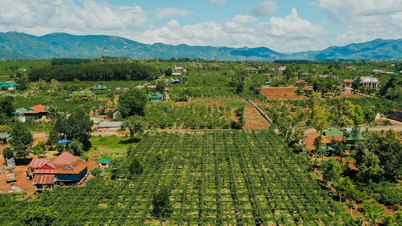


























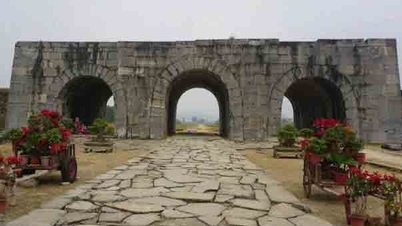

































































Comment (0)